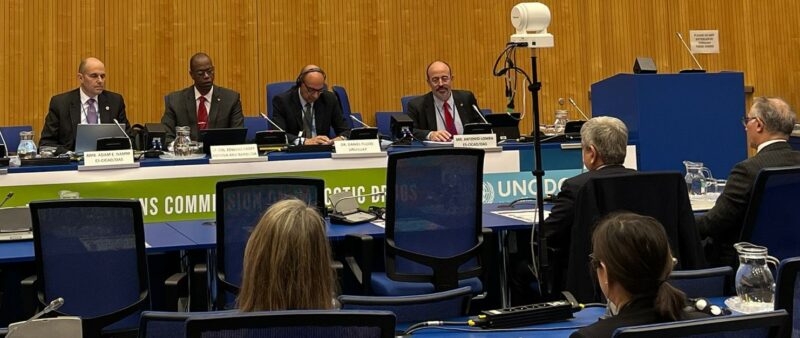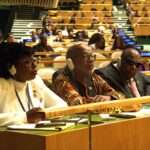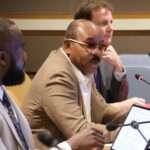
The 67th Session of the United Nations Commission on Narcotics Drugs (UN CND) was held in Vienna from March 14th to March 22nd.
Over 2500 delegates from more than 140 countries attended the conference, which included over 140 Side Events in addition to the main Plenary topics discussed.
H.E. Philbert Johnson of Ghana, Chair of the CND at its 67th session, noted that this was the largest gathering of the Commission ever.
In attendance were representatives from 140 Member States of the United Nations, 18 intergovernmental organizations, 141 non-governmental organizations, and nine UN entities.
During the 67th session of the CND, four resolutions were adopted on topics such as alternative development, rehabilitation and recovery management programs, improving access to and availability of controlled substances for medical purposes, and preventing and responding to drug overdose.
Additionally, the Commission placed twenty-three new substances/precursors under international control.
One of the side events at the conference was hosted by Antigua and Barbuda and was titled “The Importance of Developing National Drug Policies for Effective Program Development.” The event took place on Wednesday, March 20th, and had the support of the governments of Canada, El Salvador, Guyana, Uruguay, and the Executive Secretariat of the Inter-American Drug Abuse Control Commission of the Organization of American States (ES-CICAD/OAS). Over one hundred delegates attended the event from around the world.
The event was introduced by Lt. Col Edward Croft, Director Office of National Drug Control and Money Laundering Policy, Antigua and Barbuda, and moderated by Antonio Lomba, Chief of the Institutional Strengthening Unit (ES-CICAD/OAS). Lt. Col Croft highlighted Antigua and Barbuda’s policy monitoring and evaluation and the progress made during implementation.
Dr. Daniel Radio, Secretary General National Drug Board, Uruguay, emphasized the importance of comprehensive supportive services for individuals with substance use disorders.
Ambassador Adam Namm, Executive Secretary ES-CICAD/OAS, presented the document “How to Develop a National Drug Policy” and stressed the importance of the Multilateral Evaluation Mechanism.
Mr. Eduardo Loyola, Executive Director National Anti-Drug Commission, El Salvador, discussed their policy development process and the key strategic lines of action.
Lastly, Mr. James Singh, Director Customs Anti-Narcotic Unit, Guyana, shared their policy development, approval, and successes in the first year of implementation.






0 Comments